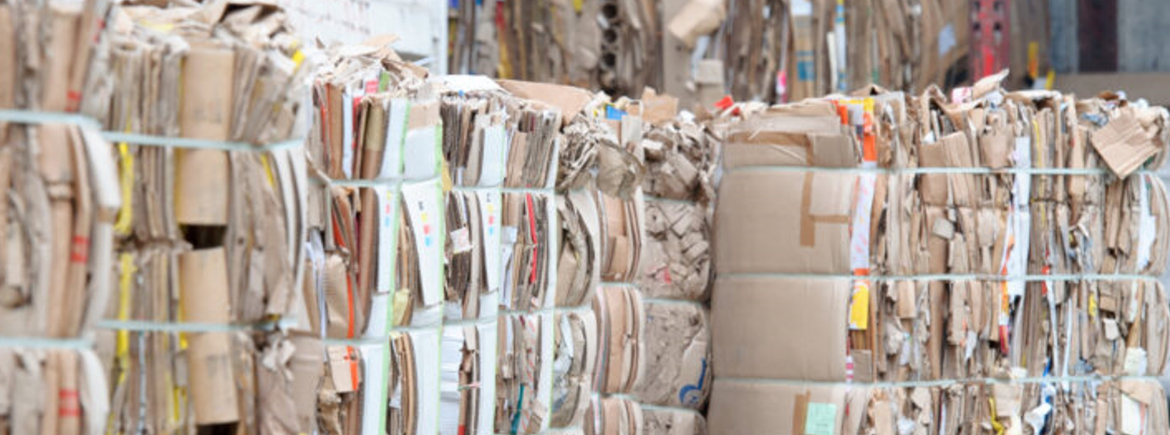What is the Extended Producer Responsibility Scheme and how will it impact waste packaging reporting?

The Extended Producer Responsibility (EPR) scheme is in the process of being implemented by the UK Government, with changes due to affect waste packaging reporting for eligible businesses in 2024.
It forms part of the Government’s strategy to protect the climate, drive green growth, and reduce unnecessary waste. It will shift the cost responsibility of processing waste from households to producers and encourage a more circular economy, where producers will reuse and recycle more packaging throughout its lifecycle.
Will your business be affected?
In this article, we’ll look at the new EPR scheme and explain who is affected and what action you need to take.
- 1.
- 2.
- 3.
- 4.
- 5.
- 6.

The importance of packaging
Packaging plays a huge role in everyone’s lives, protecting the products that we take for granted every day – like food, clothing, household goods and medication. Whilst many would like to envisage a world without packaging, how would these everyday essentials get to us? Packaging protects them from damage and also extends the shelf life of items like food and pharmaceuticals.
There is a tricky balance in getting the right amount of packaging – or the correct type – to help minimise waste in supply chains. If too much protection is used, then there is an impact on the packaging end of life waste chain. Too little and the products being transported could become waste.
Our demand for convenience food creates additional layers of packaging, items that were once packed in bulk are now individually packed.
Our shopping habits have also changed, with over 80% of us shopping online. This is creating a need for transit packaging to ensure that goods are delivered to our door in pristine condition.
So, what happens to packaging when it is removed from the products it is protecting?

The impact of packaging on waste streams
The primary purpose of packaging is to reduce waste by protecting goods from damage and perishability, but what happens when the packaging has fulfilled that role?
It is important that packaging design considers the whole lifecycle of the pack, including end of life disposal. It should consider opportunities to reuse or have a secondary purpose and ensure that materials aren’t mixed. Composite materials, like a laminated paper for example, can hinder the recyclability of a pack.
Paper is considered an environmentally friendly material as it’s easy to recycle through a consistent network of recycling collections. There is also a high demand for recycled material. In 2021, 5.4 million metric tons of paper and cardboard packaging was created by households in the United Kingdom with 3.8 million metric tons recovered, giving a recycling rate of roughly 71%.
Steel (76%), Aluminium (74%) and Glass (73%) all have a high ratio of recyclability too, coupled with a high demand for the recovered material in the manufacturing process.
The Government have identified these inconsistencies within the UK plastic recycling industry and are introducing a series of schemes and legislation to address them.

How the Government are tackling National inconsistencies in recycling
Extended Producer Responsibility forms part of the Government’s strategy to protect the climate, drive green growth, and drive down unnecessary waste.
Shifting the cost responsibility of processing waste from households to producers is set to encourage a more circular economy, where producers will reuse and recycle more packaging throughout its lifecycle.
As part of their strategy, they introduced the UK Plastic Packaging Tax in April 2022 to address the shortage of plastic recycling capabilities in the UK.
Plastic is a lightweight material, which is exactly the property that draws many businesses to use it. It takes weight out of shipments and reduces carbon emissions in the transportation of the goods – for example, a pallet of plastic bottles is much lighter than a pallet of glass bottles.
However, it’s also this property, its lightness, that makes it financially challenging to process in recycling – you need to collect a lot of plastic film to create one tonne of recyclable material for example.
The aim of the UK Plastic Packaging Tax was to make it financially viable to process the plastic that was already in circulation, rather than producing “virgin” material from fossil fuels. Charged at a cost of £217.85 per tonne to producers or importers of plastic packaging material of 10 tonnes or more, applied to material without a minimum of 30% recycled content.
This drove the demand for recycled plastic, ensuring that manufacturers of packaging products remained competitive by containing the recycled content minimum.

What is Extended Producer Responsibility
Extended Producer Responsibility (EPR) is a new piece of legislation that will see the full cost of collecting household waste shift from taxpayers to producers.
It is a reform of the existing UK Packaging Waste Regulations that were established in 1997 and, whilst it’s set to be reported on in 2024, businesses are being asked to capture their packaging usage in 2023 to be ready.
Producers will be taxed to pay the costs of managing household packaging waste with modulated fees to incentivise the use of recyclable packaging. These will be payable through either a waste management fee, or through the purchase of PRNs (Packaging Waste Recycling Notes) or PERNS (Packaging Waste Export Recycling Notes).
Eligible businesses will also need to report “Nation Data”, this is listing where your packaging has been sold, hired, loaned, gifted or discarded.

What businesses will be eligible for Extended Producer Responsibility reporting
The new Extended Producer Responsibility regulations will apply to all UK organisations that handle and supply packaging to consumers and to businesses.
This includes brands and retailers who are selling pre packaged goods into a market.
You will need to report packaging data if all the following apply:
- you’re an individual business, subsidiary, or group (but not a charity)
- you have an annual turnover of £1 million or more (based on your most recent annual accounts)
- you’re responsible for over 25 tonnes of packaging in a calendar year (January to December)
- you carry out any of the packaging activities
You may need to act if you do any of the following:
- supply packaged goods to the UK market under your own brand
- place goods into packaging that’s unbranded when it’s supplied
- use ‘transit packaging’ to protect goods during transport so they can be sold to UK consumers
- import products in packaging
- own an online marketplace
- hire or loan out reusable packaging
- supply empty packaging
If you’re affected by the new extended producer responsibility (EPR) for packaging, you will need to report your packaging data. This means you will need to start collecting the correct packaging data from 1st January 2023.

How we can help with Extended Producer Responsibility reporting
If the new Extended Producer Responsibilities are a concern for your business, we can help.
We support customers to find the right packaging solutions to improve sustainability and reduce their carbon footprint. We can identify packaging swaps to improve recyclability or take weight out of your overall packaging use and reduce the cost of PRNs.
We also provide customers with an annual summary of packaging purchased from us by category weight, removing days of number crunching from the reporting process!
Why not contact us today to see how we can help your business.
